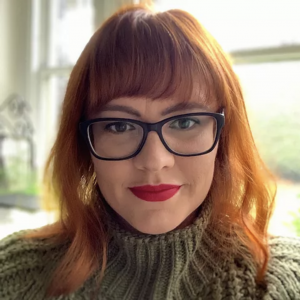
PhD Candidate, Department of English Language and Literatures
Email: sydney.lines@ubc.ca
Sydney Lines (she/her/hers) has several years experience working in higher education, museums, and in various kinds of cultural programming. She is a multifaceted creative thinker who loves big ideas, memorable stories, and gathering communities through participation in arts and culture. She started at the Hub as a Graduate Academic Assistant in 2019 and completed two PhD Arts Co-op terms as the Program Manager, Strategic Initiatives for the Hub during Fall 2020 and Fall 2022.
Research Area: Long C19 & Early C20 Transatlantic Literature, Community Engagement, Digital Humanities, Experience Design, Marketing & Communications
Graduate, Public Scholarship

